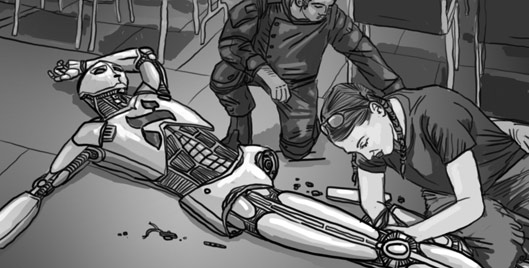In what is undoubtedly the best Labor Day present the Department of Justice ever gave America, DOJ has filed to block the AT&T/T-Mobile Merger in court. One should not, however, expect AT&T to give up easily. AT&T can, and almost certainly will, decide to fight rather than simply abandon the deal. If nothing else, it has $6 billion in break up fees to pay if the merger does not go through. On the plus side, the odds definitely favor the DoJ, which is why so many companies simply abandon the merger once DoJ has filed.
Meanwhile, the FCC, an independent agency, still needs to make its decision on what it will do. Unlike DoJ, where the head of the Anti-Trust division makes the call (subject to the usual political checks, of course), the FCC must have a vote on an Order, which must get a majority of the Commission (3 votes). Since Congress repealed the FCC’s ability to immunize phone mergers from antitrust back in 1996, the FCC cannot approve if DoJ wins in court. OTOH, the FCC is under no time pressure, and can wait to see how the court case turns out. At the same time, however, the court may decide to stay consideration until the FCC decides, since the merger cannot proceed without FCC approval.
All of this has huge implications for AT&T and its current bluster that it will fight DoJ for the right to eat T-Mo. Normally, AT&T could hope to get this wrapped up in a few months, and continue to try to use its political muscle to force a settlement. But the interaction between DoJ’s challenge and the FCC lawsuit make it incredibly difficult for AT&T to get this done before Deutsche Telekom decides it wants it $6 billion cash ‘n spectrum break up fee. As I explain below, AT&T must simultaneously persuade the FCC not to act while convincing the court to move at super speed, despite the fact that the usual way things work is for courts to wait for agencies to finish review (because the agency may remove the need for the court to act).
I explain AT&T’s legal problems below . . .






